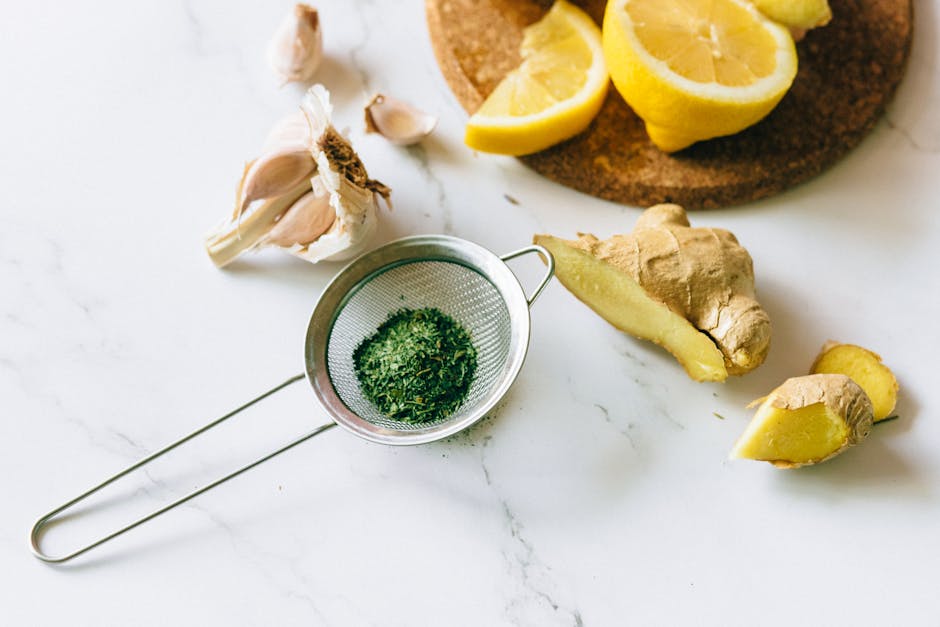Boosting Your Immune System: A Comprehensive Guide
As we navigate through life, our immune system plays a crucial role in keeping us healthy and protected from illnesses. With the ongoing global health crisis and the constant threat of various diseases, it has become more important than ever to maintain a strong and resilient immune system. But what exactly does it mean to boost your immune system? How can you improve your body’s natural defense mechanisms to stay healthy and ward off infections? In this detailed guide, we will explore the various strategies, practices, and lifestyle changes that can help you enhance your immune system and lead a healthier life.
The Basics of Immunity

Before we delve into how to boost your immune system, it’s important to understand the basics of immunity. The immune system is a complex network of cells, tissues, and organs that work together to defend the body against harmful pathogens, such as bacteria, viruses, and parasites. When the immune system is functioning optimally, it can identify and destroy foreign invaders, keeping you healthy and well.
There are two main types of immunity: innate immunity and adaptive immunity. Innate immunity is the body’s first line of defense and includes physical barriers like the skin, as well as immune cells that can quickly respond to infections. Adaptive immunity, on the other hand, is more specific and involves the production of antibodies and memory cells that can recognize and remember specific pathogens. Both types of immunity play a crucial role in keeping you healthy and protected.
Eat a Healthy and Balanced Diet

One of the most effective ways to boost your immune system is to maintain a healthy and balanced diet. Eating a variety of nutrient-rich foods can provide your body with the vitamins, minerals, and antioxidants it needs to function optimally. Some key nutrients that are essential for a strong immune system include:
- Vitamin C: Found in citrus fruits, bell peppers, and leafy greens, vitamin C is known for its immune-boosting properties.
- Vitamin D: Sunlight is a natural source of vitamin D, but you can also get it from fortified foods like milk and fatty fish.
- Zinc: Foods like oysters, beef, and beans are rich in zinc, which plays a key role in immune function.
- Probiotics: These beneficial bacteria can be found in fermented foods like yogurt, kefir, and sauerkraut, and can help support a healthy gut microbiome.
By incorporating a wide range of foods into your diet and focusing on whole, unprocessed options, you can ensure that your body is getting the nutrients it needs to maintain a strong immune system. Additionally, staying hydrated and limiting your intake of processed foods and added sugars can also support overall immune function.
Get Sufficient Sleep

Sleep is often overlooked as a key component of a healthy immune system, but getting an adequate amount of rest is essential for overall well-being. During sleep, your body repairs and regenerates cells, and your immune system releases cytokines, proteins that help regulate the immune response. Chronic sleep deprivation has been linked to a weakened immune system, making you more susceptible to infections and illnesses.
Most adults need between 7-9 hours of sleep per night to function optimally, so it’s important to prioritize a consistent sleep schedule and create a relaxing bedtime routine. Avoiding screens before bed, creating a dark and quiet sleep environment, and practicing relaxation techniques like meditation or deep breathing can all help improve the quality of your sleep and support a healthy immune system.
Stay Active with Regular Exercise

Exercise is another powerful tool for boosting your immune system and improving overall health. Physical activity can help increase circulation, reduce inflammation, and promote the production of antibodies and white blood cells, all of which can enhance immune function. Regular exercise has been shown to reduce the risk of chronic diseases like heart disease, diabetes, and obesity, all of which can weaken the immune system.
It’s important to find activities that you enjoy and that fit your lifestyle, whether it’s going for a walk, practicing yoga, or lifting weights. Aim for at least 150 minutes of moderate-intensity exercise per week, and try to incorporate a mix of cardiovascular, strength training, and flexibility exercises for optimal health benefits. Remember to listen to your body, and if you’re new to exercise or have any health concerns, consult with a healthcare provider before starting a new fitness routine.
Manage Stress Effectively
Chronic stress can have a profound impact on your immune system, making you more susceptible to infections and illnesses. When you’re stressed, your body releases cortisol, a hormone that can suppress immune function and increase inflammation. Finding healthy and effective ways to manage stress is essential for supporting your immune system and overall well-being.
There are many strategies you can use to reduce stress and promote relaxation, such as mindfulness meditation, deep breathing exercises, yoga, or spending time in nature. It’s also important to prioritize self-care and make time for activities that bring you joy and fulfillment. Building a strong support network of friends and family members can also help you cope with stress and navigate life’s challenges more effectively.
Consider Immune-Boosting Supplements
In addition to a healthy diet and lifestyle, certain supplements may help support immune function and enhance your body’s natural defenses. Some popular immune-boosting supplements include:
- Echinacea: This herb has been used for centuries to boost the immune system and help prevent colds and flu.
- Vitamin D: If you have limited sun exposure or are at risk of deficiency, taking a vitamin D supplement can support immune function.
- Probiotics: These beneficial bacteria can help maintain a healthy gut microbiome and support immune health.
- Zinc: Supplementing with zinc may help reduce the duration and severity of colds and other respiratory infections.
Before starting any new supplements, it’s important to consult with a healthcare provider to ensure they are safe and appropriate for your individual needs. Keep in mind that supplements should not replace a healthy diet and lifestyle, but rather complement your existing efforts to support your immune system.
Practice Good Hygiene
Good hygiene practices are essential for preventing the spread of infections and keeping your immune system strong. Washing your hands regularly with soap and water, especially before eating or touching your face, can help remove germs and bacteria that can cause illness. Using hand sanitizer when soap and water are not available, covering your mouth and nose when you cough or sneeze, and avoiding close contact with sick individuals are all important steps you can take to protect yourself and others.
In addition to personal hygiene, it’s also important to maintain a clean and healthy environment. Regularly disinfecting commonly touched surfaces like doorknobs, light switches, and countertops can help reduce the spread of germs and prevent infections. By practicing good hygiene habits both personally and in your surroundings, you can support your immune system and reduce your risk of getting sick.
Conclusion
In conclusion, boosting your immune system is a multifaceted process that involves making healthy lifestyle choices, such as eating a nutritious diet, getting enough sleep, staying active, managing stress, and practicing good hygiene. By incorporating these strategies into your daily routine, you can support your immune system and reduce your risk of infections and illnesses. Remember that everyone’s immune system is different, and what works for one person may not work for another. It’s important to listen to your body, consult with healthcare providers when needed, and make choices that support your overall health and well-being.
Take charge of your health by prioritizing immune-boosting practices, and you’ll be on your way to a stronger, healthier immune system and a happier, more vibrant life.
Whether you’re looking to ward off the common cold, prevent chronic diseases, or simply feel your best, taking steps to boost your immune system is a powerful way to safeguard your health and well-being. By understanding the fundamentals of immunity, making informed choices about your diet and lifestyle, and incorporating immune-boosting practices into your daily routine, you can support your body’s natural defense mechanisms and enhance your overall health.




